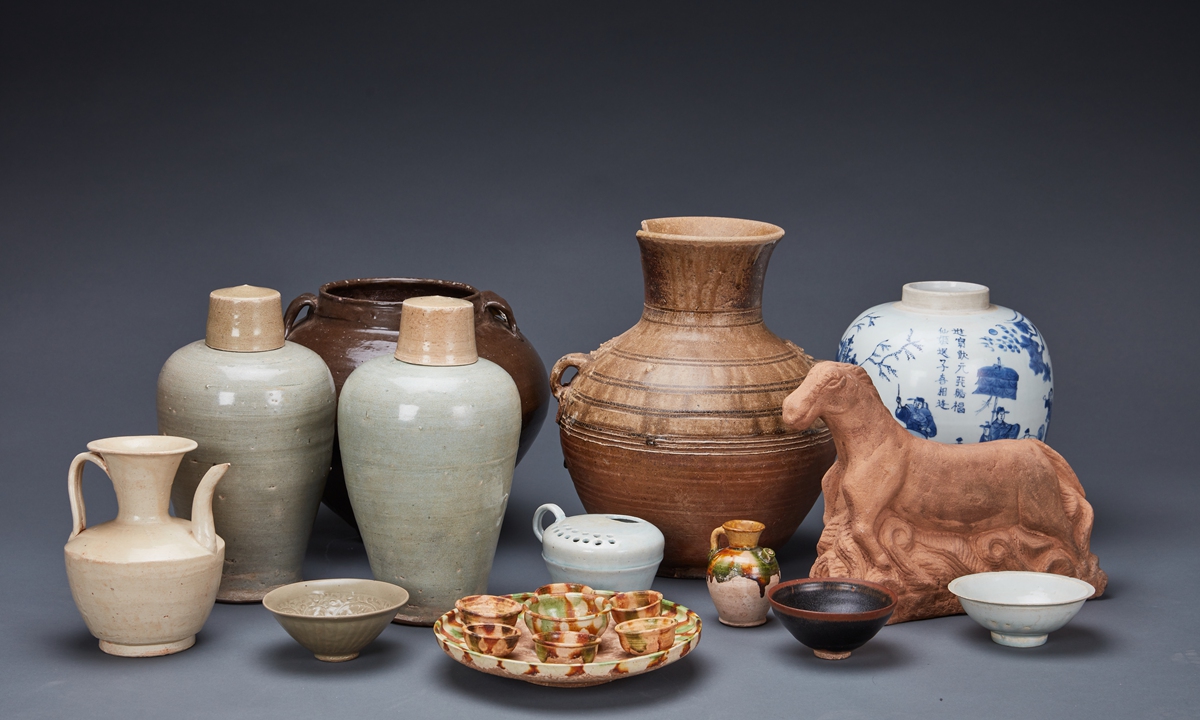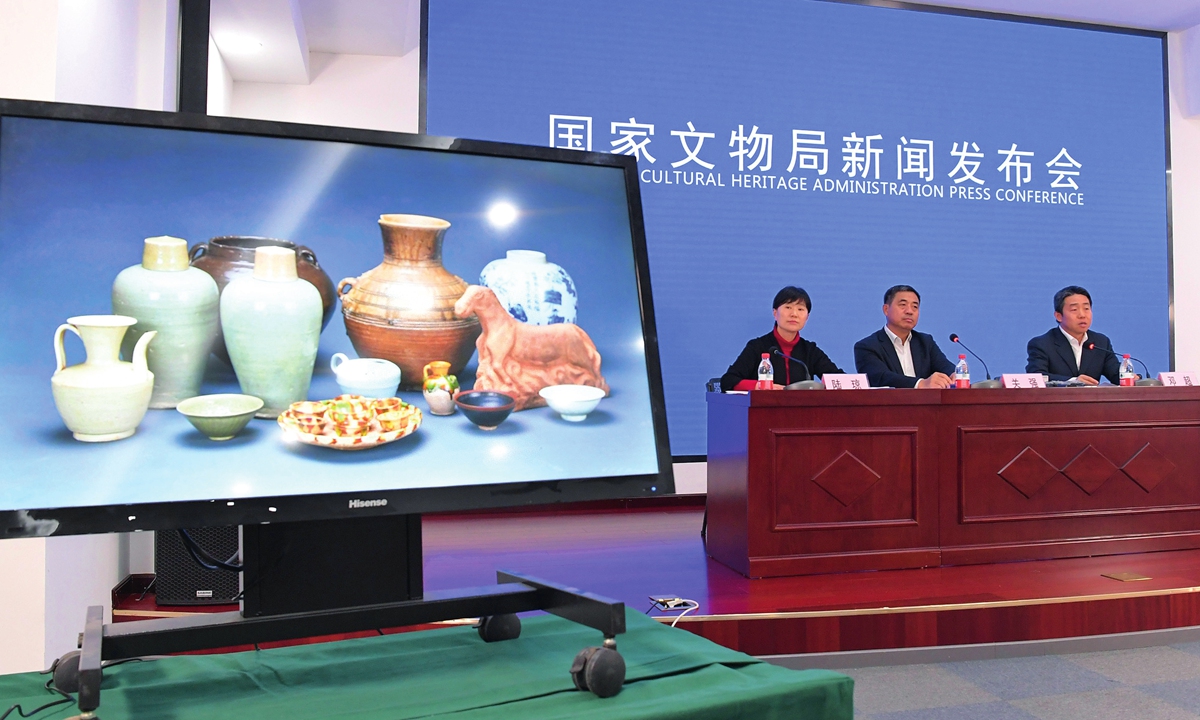Chinese give thumbs up as UK returns relics
By Chen Xi Source: Global Times Published: 2020/11/18 21:23:40
Positive interactions welcomed despite pain left by imperialists

Photo: courtesy of National Cultural Heritage Administration
The UK has won applause from the Chinese public when China's cultural authorities announced Wednesday that the European country had returned 68 smuggled Chinese relics after 25 years of negotiations.
The news came after a UK diplomat made headlines in China by saving a drowning woman in Chongqing, prompting waves of goodwill from social media.
The return of the relics also prompted some people to ask the British Museum to return other Chinese treasures it acquired during the British Empire, which reflected Chinese people's mixed feelings when interacting with the country.
"The recovery of 68 smuggled cultural relics lost in the UK was an ideal end after the Chinese government's efforts in transnational cultural relic repatriation over the past 25 years. This is a significant landmark for international conventions," said Guan Qiang, deputy director of the National Cultural Heritage Administration (NCHA), at a press conference.
The 68 relics include porcelain, pottery and bronze items dating from the Spring and Autumn Period (770BC-476BC) to the Qing Dynasty (1644-1911). They were seized by British police in 1995 during an investigation into an international cultural relics criminal gang, and returned to China this year after lengthy procedures as stipulated by British laws and international treaties.
The return of the relics was applauded by Chinese netizens, with many posting messages such as "welcome home" and "thank you, British police" on social media platforms.
Some netizens connected the event to the good deed of Stephen Ellison, the newly appointed British Consul General in Chongqing, who saved a drowning woman at a scenic spot in the Southwest Chinese city.
Chinese Foreign Ministry Spokesperson Zhao Lijian also thumped up for Ellison's righteous and courageous move. "One good turn deserves another, that's Chinese philosophy," a netizen wrote on Sina Weibo.
But some netizens also connected the return of relics to the UK's imperialistic invasions of China and looting of Chinese artifacts in the past, calling for the British Museum to return Chinese treasures that are in its collections.
Chinese people have mixed feelings about the former invader, which has had political rows with China but also close people-to-people exchanges nowadays, analysts said, citing tourism and international education as examples.
Applauding the good deeds showed that Chinese people treat the UK as an equal, casting aside conflicts of the past, while marking the history of the invasion suggested that lessons learned from history will help China to strive and stand confidently, analysts noted.
International Association of Museums said China has 1.46 million pieces of relics overseas while Chinese Society of Cultural Relics estimated the number to be up to 10 million, mainly in musuems in the US, the UK and France or being kept by Western private collectors.

Officials of China's National Cultural Heritage Association display 68 smuggled relics that were just repatriated from the UK after 25 years of negotiations. Photo: Xinhua
To the disappointment of some Chinese people, the return of lost cultural relics that are overseas is complicated.Shen Binti, a lawyer based in Beijing, told the Global Times that lost cultural relics are returned to China mainly in three ways: through legal channels, diplomatic negotiations or by purchasing them.
"The return of the relics requires a lot of historical evidence, communication between countries and a legal charter, so although we may hope that they can be recovered, it could be very difficult to achieve," Guan told the Global Times.
Posted in: SOCIETY,CHINA FOCUS